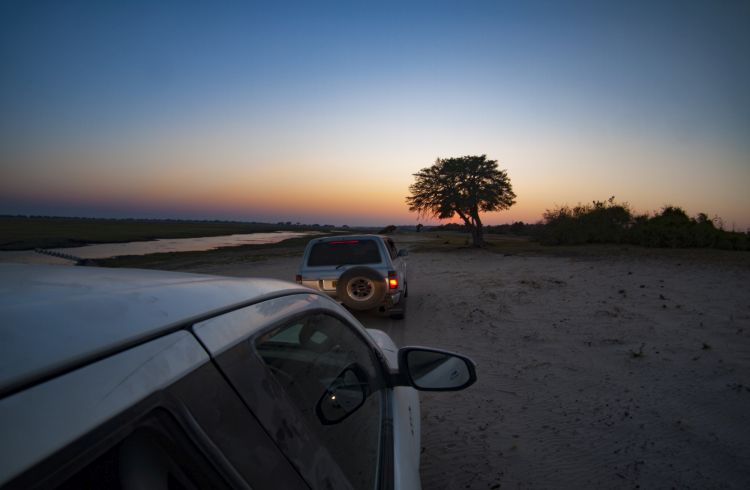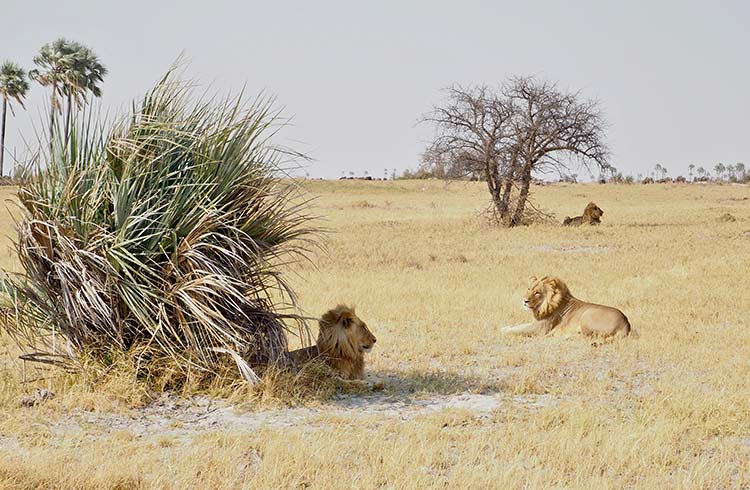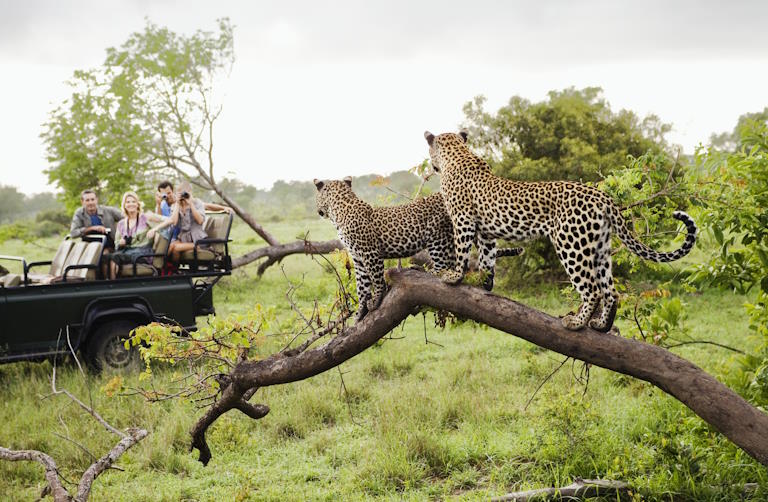Is Botswana Safe for Travelers? 6 Essential Travel Safety Tips
Botswana is one of the safer countries in Africa. Here are our tips for avoiding petty crime and staying within the law.
 Photo © Getty Images/Mara Duchetti
Photo © Getty Images/Mara Duchetti
Botswana is one of the safest destinations in Africa for travelers. But, like any travel destination, it's wise to take precautions.
Be prepared for your journey with these tips for avoiding theft and pickpockets, safety advice for women and LGBTQ+ travelers, and emergency contact information.
- Street crime in Botswana
- Transport crime
- Emergency numbers in Botswana
- Women’s safety in Botswana
- LGBTQ+ safety
- Local laws to be aware of
Street crime in Botswana
Botswana’s crime rate is relatively low compared to other African countries. In fact, according to the 2024 Global Peace Index, Botswana is the third most peaceful country in Africa. But crime does still occur.
Most of the violent crime is centered in the major cities like Gaborone, Francistown, and Maun (the gateway to the Okavango Delta). However, attacks on tourists are rare, and crime in the Delta itself is low.
Petty crime such as pickpocketing or snatch thefts are more common. To reduce your risk, keep valuables secure, avoid displaying expensive items, and be careful when using your smart phone in public spaces.
You should exercise particular caution in areas like Gaborone Dam and Kgale Hill, especially during the evening hours. Avoid walking alone at night or in poorly lit areas; instead, opt for reputable taxis.
Thefts from vehicles
Vehicle break-ins are a known issue in Botswana. Never leave valuables inside an unattended vehicle.
Criminals have also been known to target cars waiting at traffic lights. Ensure your car windows are closed and doors are locked, keep valuables out of sight, and don’t stop for hitchhikers.
Transport crime
If arriving in Botswana through South Africa, be aware of ongoing baggage theft problems at OR Tambo International Airport (Johannesburg) and Cape Town International Airport. Keep valuables like electronics and jewelry in your carry-on luggage to avoid potential theft.
When using taxis in Botswana, look for licensed taxis with blue plate numbers, or have your restaurant or hotel call a taxi for you. Always agree on the fare before starting your journey to avoid disputes.
Emergency numbers in Botswana
Police: 999
Ambulance: 997
Fire department: 998
Women’s safety in Botswana
Botswana is generally safe for female travelers, with locals being respectful and polite. However, women may receive unwanted attention in bars or similar settings, particularly if traveling alone. While more casual attire is acceptable in tourist-heavy areas, it’s best to dress modestly in rural areas. As always, avoid walking alone at night. Stick to well-lit, populated areas and use taxis for transportation after dark.
LGBTQ+ safety
Homosexuality has been legal in Botswana since 2019. But while the country is relatively progressive compared to some of its neighbors, travelers should still be mindful of local attitudes and respect cultural norms. Public displays of affection may be met with varying degrees of acceptance, so be discreet.
Local laws to be aware of
Possession and trafficking of drugs are illegal in Botswana, and prison conditions are notoriously harsh. It’s also illegal to photograph military or government buildings without permission. Always carry personal identification when traveling and respect local laws and customs.
Botswana has strict laws against the illegal possession or export of animal trophies or parts. This includes items such as horns, tusks, and skins. Not only is buying these items against the law, it also encourages poachers. Help conserve African wildlife and purchase a more responsible souvenir instead.
Related articles
Simple and flexible travel insurance
You can buy at home or while traveling, and claim online from anywhere in the world. With 150+ adventure activities covered and 24/7 emergency assistance.
Get a quote

No Comments